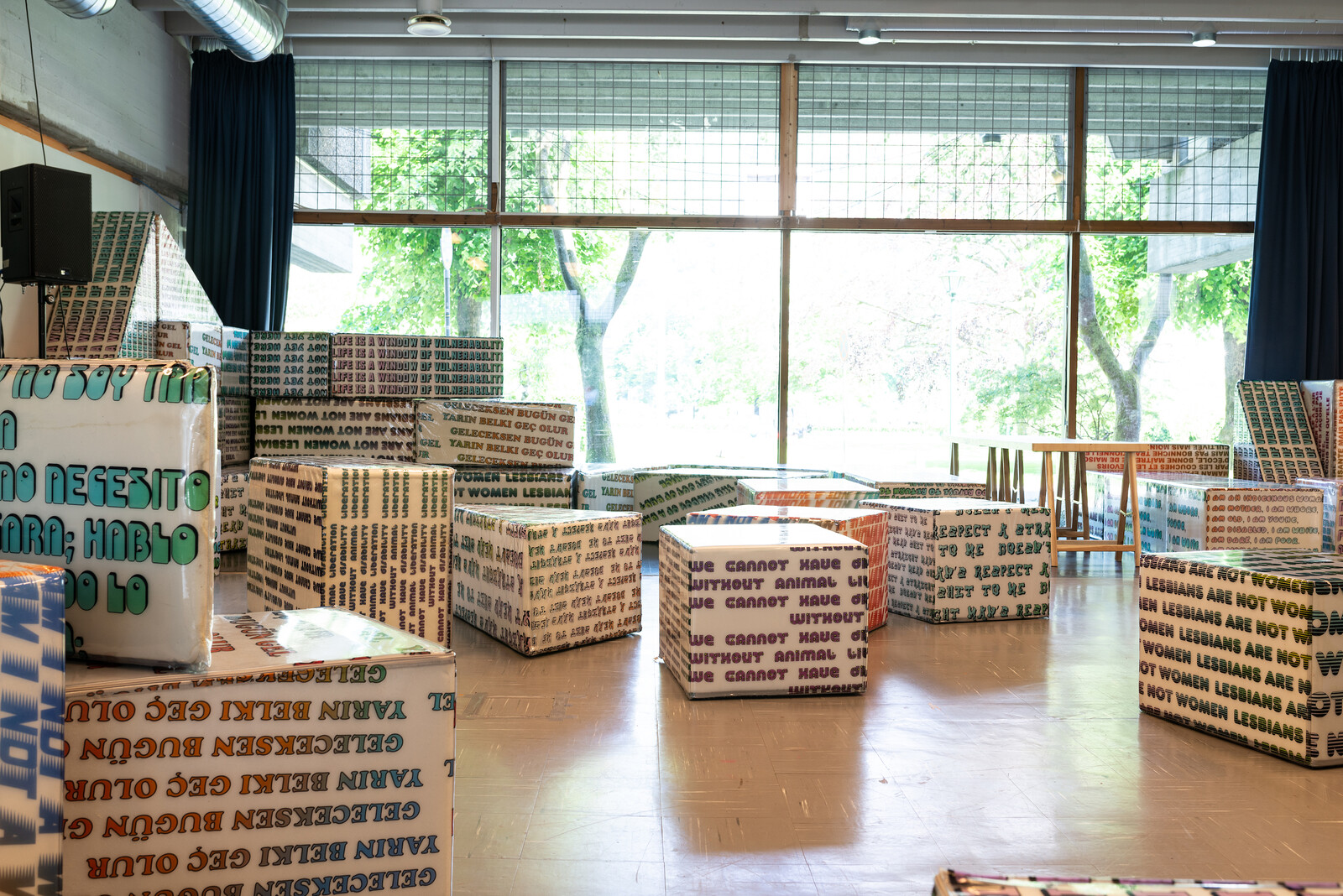Categories
Subjects
Authors
Artists
Venues
Locations
Calendar
Filter
Done
September 24, 2019 – Review
Bergen Assembly 2019, “Actually, the Dead Are Not Dead”
Rachael Rakes

I am trying not to be cynical, I remind myself repeatedly, humming the words in a little song as I tour the exhibitions of the third edition of Bergen Assembly (BA). I am here to evaluate: the scanning and searching of that state makes this instinctual mental cold critique harder to quiet. This is not a biennial press junket kind of cynicism. Rather, this is something a little more desperate: the cynicism of repeated missed opportunities (and wasted resources) by those we sympathize with. Despite good intentions, these failures to reach; these failures to communicate.
Though similar in some ways—it is a large-scale, location-based, regularly occurring (triennial) art event—Bergen Assembly is not a traditional biennial. The initiative launched a decade ago, during the Bergen Biennial Conference, as a response to the global proliferation of biennials, and for the city to produce a show that would attract cultural capital without rehearsing the tokenisms and clichés of biennial culture: its artistic teams are given more agency to work with timing and format, and this has led to an emphasis on pedagogy, long-term projects, community engagement, and gatherings. The term “assembly” itself suggests a gathering, rather than, say, a show.
Titled “Actually, the Dead Are …
September 23, 2016 – Feature
Bergen Assembly
Kjetil Røed

This year’s Bergen Triennial is a mix of carnival, dry reflection, and the reshuffling of archives. The first Bergen Assembly, held in 2013, was preceded by several years of seminars and panels aimed at thoroughly understanding and researching its format. The highlight of this research period was The Biennial Reader (2010), which remains a bible of sorts for the topic. Yet the triennial was, in a sense, too well researched, because “Monday Begins on Saturday” addressed a professional art crowd rather than the local scene. Curated by Ekaterina Degot and David Riff, it was based on a Russian science fiction novel of the same name by Arkady and Boris Strugatsky and attempted to render the book’s ideas about science and research into the triennial’s different venues, which had such titles as “Institute of Love and the Lack Thereof” or “Institute of Lyrical Sociology,” with the artists figured as researchers. It was intriguing and the eccentricity of the curatorial blueprint deserved more credit than it received.
This time the public research side of the Triennial consists of talks and panel discussions, most of them arranged by the curatorial collective freethought—the consequence being that it often felt less like a triennial than a …
September 3, 2013 – Review
“Monday Begins on Saturday”
Adam Kleinman

For the inaugural iteration of Bergen Assembly—the first ever large-scale international contemporary art triennial in Norway’s second city—Moscow-based curators Ekaterina Degot and David Riff turned to another duo, Arkady and Boris Strugatsky, and their Soviet-era novel Monday Begins on Saturday as the exhibition’s guiding sprit. The book itself can be roughly summarized as an absurdist satire of Soviet bureaucracy centered on a fictional scientific research facility. There the researchers ceaselessly toil—without the respite of a weekend, as the title suggests—on investigations into human happiness, deploying magic and other seemingly unscientific, and often useless, methods. In a Pinocchio-like twist, lazy practitioners are punished by a curse, which causes profuse growth of hair on the ears. Although many of these “transgressors” face ridicule for their lax work ethic, they stay at the institute nonetheless for the job security it provides. Pulled into this comic orbit-cum-exhibition as a framing narrative, Josef Dabernig’s Hypercrisis (2011) more than smirks at torpid bureaucracies, and hints at other concepts in the show’s core vocabulary.
In this film-essay, the contemporary afterlife of a real, but vestigial, institution and its dilapidated home in today’s Armenia are surveyed by Dabernig’s patient and relentless camera. Set up in Soviet times, the site …
